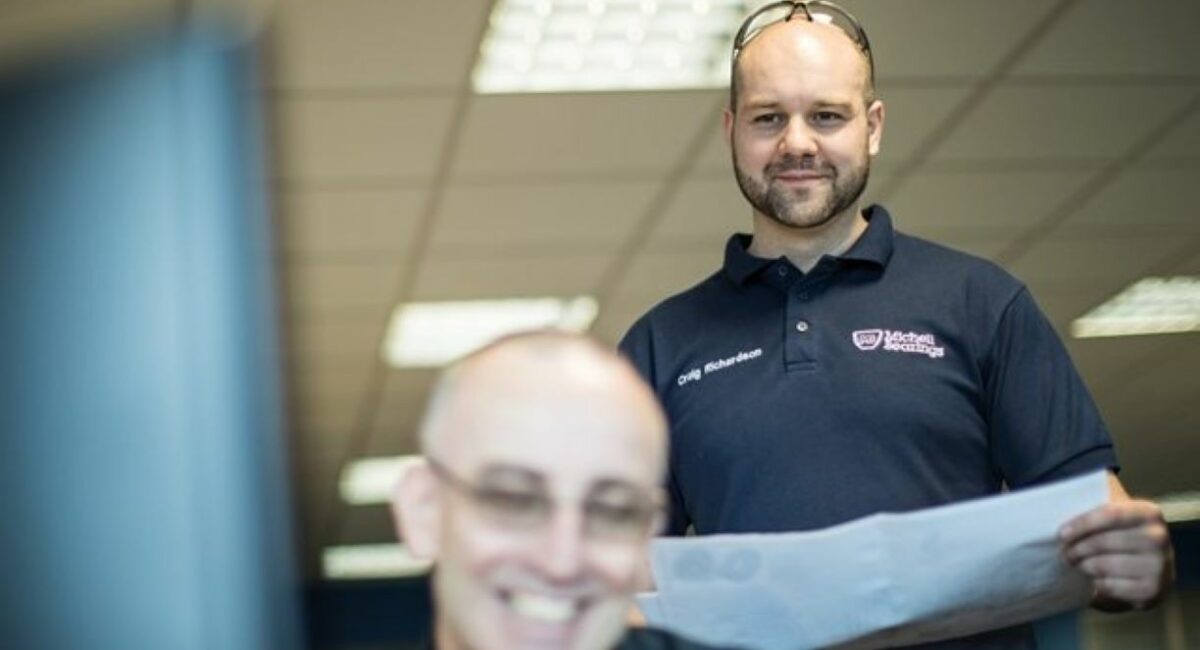We spoke to Craig to find out how his journey through an apprenticeship helped to shape his career as a manufacturing engineer.
How did you get into engineering?
I started my engineering career as an apprentice at Michell Bearings when I finished school in 2001. The move from the school classroom straight into the heavy engineering environment was a strange one, I went from sitting at a desk in a classroom to being surrounded by large products and machinery that I had never seen before, it was a very exciting change.
Tell us a bit about your apprenticeship?
I spent the first years of my apprenticeship working in different areas of the shop floor learning the manufacturing process, firstly in machining, then fitting, followed by inspection and assembly. I then focussed my apprenticeship training on the CNC turning and milling machines, initially working on the conventional lathes which were a challenge, as Michell Bearings products have to meet very high tolerances.
In total my apprenticeship lasted four years but there was never a day when I wasn’t learning something new. It was challenging, but there was always help available from my mentor and other staff, I was guided every step of the way by the people around me.
What did you do after your apprenticeship?
After completing my apprenticeship I was able to progress into the design team and learn the technical aspects and design of Michell Bearings products. It was great to learn the complex design calculations and fundamentals of the bearings after manufacturing it for the last four years, it opened up a whole new level of engineering to me.
After a few years I was given the opportunity to move into the production engineering department as a Planning Engineer. In this role my job was to take the drawings and design calculations from the design engineers and create a suitable manufacturing method. I gained a lot of experience in the method of manufacturing parts, as I was planning the manufacturing to meet the drawing specification.
Each role has presented its own new challenges to me, which has allowed me to strengthen my engineering knowledge and skills set.
What do you do in your current job role?
My current role as a Manufacturing Engineer in the production engineering department has a lot of variation each day. I am responsible for making sure that machines are up and running, tooling is correct and in stock and the processes that are in place on the shop floor are up to date and efficient.
Michell Bearings has recently relocated factory and so a lot of planning, moving of machinery and equipment and installation has been taking place alongside my normal job role.
Michell Bearings received investment from its parent company British Engines allowing the addition of new machine tools, updated processes and manufacturing methods. This has meant that new methods of manufacturing, tooling and fixtures have been designed and it is my responsibility to ensure everything works correctly.
What do you find most challenging about your job?
There are many challenges in my role with the hardest challenge of all being time. When something has not performed as planned or doesn’t work as expected I need to be able to devise a new method and think quickly under pressure to get the product manufactured.
What career advice would you give to someone aspiring to go into a similar role?
I would always recommend an apprenticeship as a route into engineering, you are given the opportunity to learn hands on, alongside people who have been doing the job for years, it gives you access to knowledge that books just can’t give.
The advice I would give to anyone wanting to develop themselves is to listen and learn from the people around you. Gather all the information and facts about an issue before taking any action as it allows you to question the error you face before applying your knowledge and what you have learnt from the people around you and previous problems. Thinking in this way will help you to be innovative and solve issues you are faced with in your everyday work.
